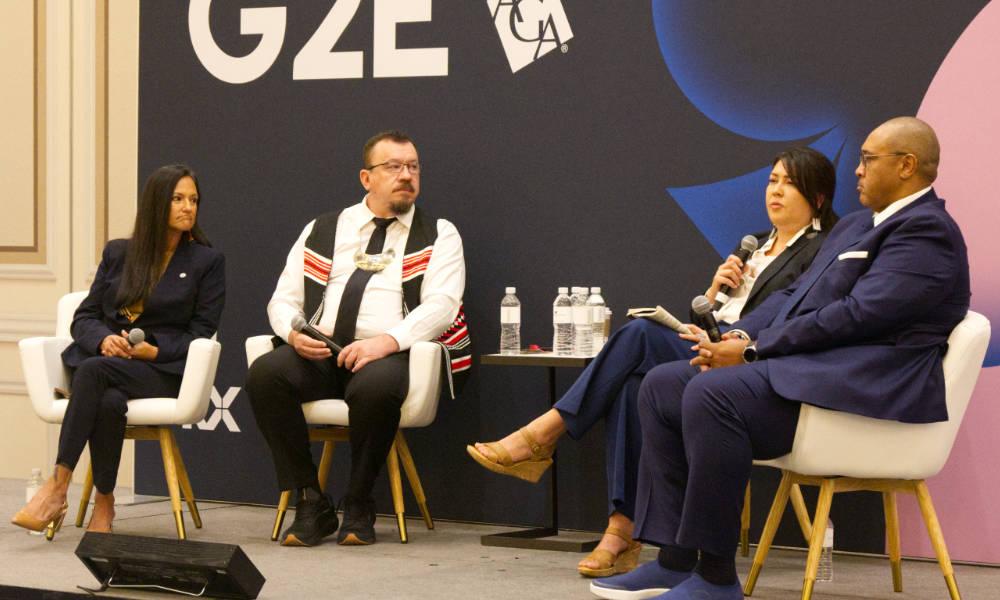The tribal casino industry is facing a triple threat from cyberattackers, prediction markets, and intertribal squabbles, according to a panel discussion at the Global Gaming Conference this week by the National Indian Gaming Commission.
The panel featured Jeannie Hovland, vice chair of the NIGC; Rea Cisneros, acting general counsel of the NIGC; Thomas Cunningham, chief compliance officer with the NIGC; and Tim Cotton, chief technology officer with the NIGC. Its Public Affairs Chief Justin Platt hosted the session.
Cotton addressed cybersecurity threats that continue to face tribes.
“Ransomware attacks continue to plague the industry,” Cotton said. “What we see also is insider threats. An individual may not be trying to do anything maliciously that would hurt the gaming operation, but maybe someone provides too much information or clicks on phishing links.”
Cotton said they’re seeing several types of attacks when they visit tribes and do vulnerability tests. The key is that tribes have educational pieces and controls in place to keep them from being victims. “More than likely, you will be a victim.”
Hovland discussed tribal concerns about prediction markets and how the NIGC is handling the threat.
“I want to assure you this is a priority for the Commission,” Hovland said. “We meet regularly and follow the ongoing developments and it’s important that we engage with our federal partners, such as the Department of Justice, Department of Interior, and the Commodity Futures Trading Commission.”
Hovland said they had a productive meeting a couple of weeks ago at the CFTC with the acting chairman and will continue to have dialogue. She doesn’t know how the CFTC is addressing the issue at this time.
“We want to encourage tribes to continue to visit with us to bring your concerns to us and know that we are working on the next step and hope to be able to share that with tribes really soon,” Hovland said.
Cisneros said they know the issue is important for tribal sovereignty and gaming. The NIGC has no independent legal authority, which means the Department of Justice represents it in litigation if it happens.
Cunningham said they hear from tribes about prediction markets and sweepstakes that may encroach on tribal lands. Those bring a lot of questions and concerns, but the most recent concern is over tribal gaming commissions.
The NIGC works with and trains those commissions, which invest a lot in the staff. Cunningham said the gaming regulators and tribal leadership have had impasses and are unable to work things out.
From regulation and licensing to internal controls and use of gaming revenue, when they reach that impasse, sometimes the solution is a clean-slate option.
“The tribes spent all of that money developing expertise and they remove it and get to start over,” Cunningham said. “That gives me great pause. They look at us and ask what happened. We did what the law said and what the regulations required us to do. They feel unjustly punished for that.”
When the communication stops, Cunningham said they need to work double time and bring everyone together.
Tribes will have to wait a little longer for any guidance and regulation that comes out of the NIGC.
Since the Trump administration took over in January, Cisneros said 209 executive orders have been issued, an average of one per day. One of the orders requires independent agencies to submit all proposed and final rules to the Office of Information and Regulatory Affairs.
“This is a new process for independent agencies and as you can imagine, anytime there are new processes there’s a learning curve, not only for the agency that’s submitting, but the agency we’re submitting to. There’s a lot of back and forth and that takes more time to get through what we used to do more quickly.”




